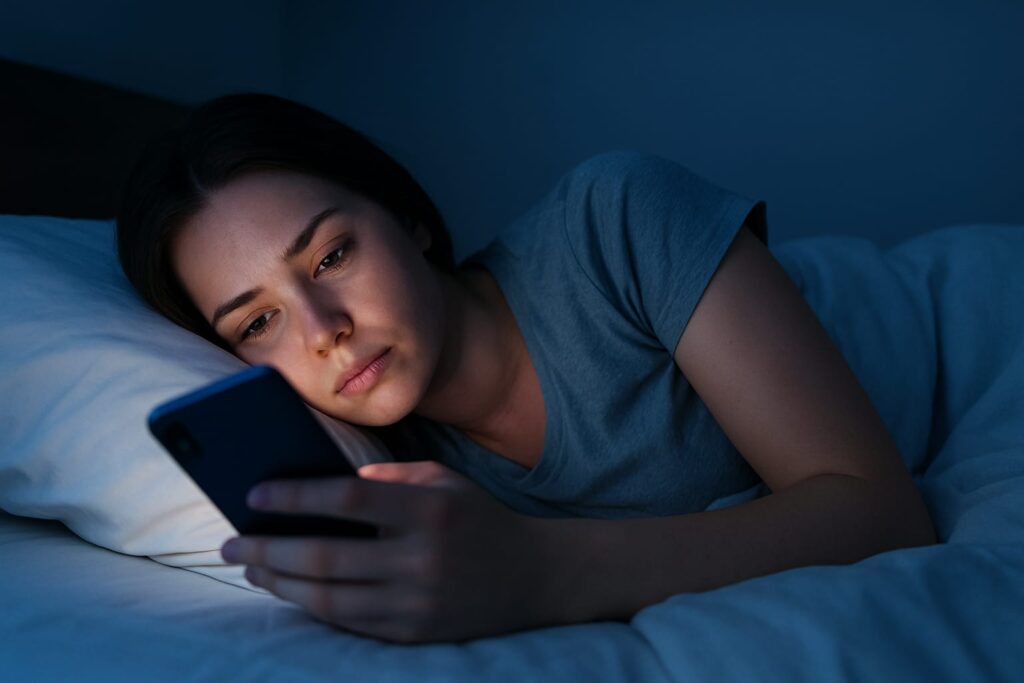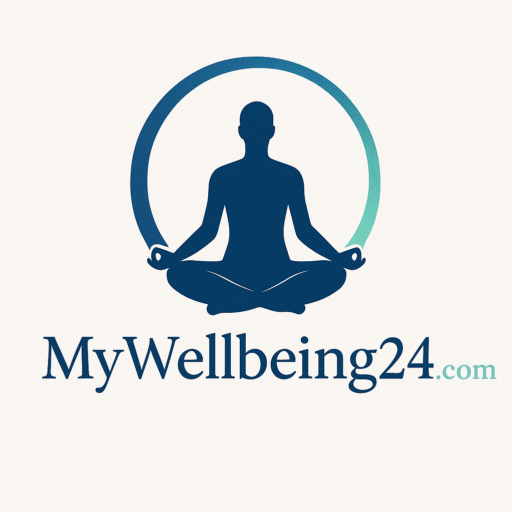Does Blue Light Really Ruin Your Sleep?
Sleep plays a vital role in human health, yet many people today struggle with falling asleep or staying asleep. One common explanation is the light from digital devices. The question often asked is: does blue light ruin your sleep? This topic has attracted scientists, doctors, and everyday users alike. In this article, we’ll explore what blue light is, how it affects the brain, and whether reducing it can genuinely improve your sleep quality.

What Exactly Is Blue Light?
Blue light is part of the visible spectrum of light, falling between 400–490 nanometers in wavelength. Unlike softer, warmer tones, blue light has a higher energy level and is naturally present in sunlight. Digital screens, LED bulbs, and even streetlights also emit it.
Because it stimulates alertness, blue light exposure during the day can be beneficial. It helps regulate circadian rhythms and improves cognitive performance. However, the issue arises when exposure continues into the night. That is when people begin to wonder: does blue light ruin your sleep or is the concern overstated?
How Does Blue Light Interact With the Brain?
To understand whether blue light ruins your sleep, it’s important to know how it interacts with the brain. The human body has a built-in clock, known as the circadian rhythm, which regulates cycles of sleep and wakefulness.
Blue light suppresses the production of melatonin, the hormone responsible for making you feel sleepy. Normally, melatonin levels rise after sunset, signaling to the body that it is time to rest. However, when you spend hours scrolling through your phone or working late on a laptop, the artificial blue light tricks your brain into thinking it is still daytime.
As a result, sleep can be delayed, lighter, or shorter in duration.
Does Blue Light Ruin Your Sleep More Than Other Light?
Not all types of light affect sleep equally. For instance, red and amber light are much less disruptive because they don’t strongly interfere with melatonin release. In contrast, blue wavelengths are particularly powerful in delaying circadian signals.
Research consistently shows that even brief exposure to blue light in the evening reduces melatonin levels. Therefore, the claim that blue light ruins your sleep holds scientific weight, at least under specific conditions.
Common Sources of Blue Light in Modern Life
Smartphones and Tablets
Most people keep their phones close, often using them late at night. This makes smartphones the biggest contributor when asking, does blue light ruin your sleep?
LED Lighting
Many households now use energy-efficient LED bulbs. While convenient, they also emit more blue light than traditional incandescent bulbs.
Televisions and Laptops
Evening binge-watching or working on late projects can extend exposure long past sunset.
Scientific Evidence: What Studies Reveal
A number of clinical studies have tested the claim: does blue light ruin your sleep? In one experiment, participants who read on an e-reader before bed took longer to fall asleep than those who read printed books. They also felt less alert in the morning.
Other research has shown that blue light delays the release of melatonin by up to 90 minutes. Furthermore, adolescents seem to be more sensitive than adults, which may explain rising sleep issues among teenagers who spend hours online before bed.
Does Blue Light Ruin Your Sleep Every Time?
The impact of blue light is not the same for everyone. Several factors influence whether your sleep will suffer:
- Timing: Using devices in the early evening is less disruptive than using them minutes before bed.
- Individual Sensitivity: Some people naturally produce melatonin more easily.
- Screen Brightness and Distance: A dimmed screen at arm’s length is less harmful than a bright one held close to the eyes.
Thus, while blue light can ruin your sleep, the degree depends on habits and individual biology.
Blue Light vs. Lifestyle Factors
It’s worth remembering that sleep is influenced by many variables beyond blue light. Stress, caffeine, alcohol, and irregular schedules all disrupt rest. Therefore, asking does blue light ruin your sleep in isolation overlooks the bigger picture.
For example, people who exercise regularly and keep consistent bedtimes tend to sleep well, even if they use screens occasionally. Meanwhile, chronic stress can keep you awake regardless of light exposure.
Practical Strategies to Reduce Blue Light Exposure
Use Night Mode or Blue Light Filters
Most smartphones and laptops now include a “night shift” or “comfort view” setting. These reduce the blue wavelengths emitted in the evening.
Wear Blue Light Blocking Glasses
Several studies suggest that wearing amber-tinted lenses before bedtime improves sleep quality.
Adjust Bedroom Lighting
Switching to warmer lights in the evening can help signal to the brain that it’s time to relax.
Set a Digital Curfew
Limiting screen use at least one hour before bed remains one of the most effective ways to answer does blue light ruin your sleep with a confident “no.”
Myths and Misconceptions
“Blue Light Is Always Harmful”
In reality, blue light during the day is beneficial. It boosts mood and attention.
“Only Screens Emit Blue Light”
As mentioned earlier, even indoor LEDs contribute to exposure.
“Blocking Blue Light Guarantees Better Sleep”
While helpful, it’s not a cure-all. Sleep hygiene requires multiple habits working together.
Does Blue Light Ruin Your Sleep Long-Term?
Long-term exposure can contribute to chronic sleep deprivation, which is linked to obesity, diabetes, cardiovascular problems, and weakened immunity. Although research is ongoing, it is increasingly clear that avoiding excessive blue light at night is a step toward long-term wellness.
Balancing Technology and Healthy Sleep
In today’s digital world, completely avoiding screens isn’t realistic. Still, balance is key. By limiting late-night scrolling, using filters, and maintaining consistent bedtime routines, you can prevent the worst outcomes often associated with the question: does blue light ruin your sleep.
Final Thoughts: Does Blue Light Really Ruin Your Sleep?
The evidence strongly suggests that excessive evening exposure to blue light can delay sleep and reduce its quality. However, context matters. Daytime exposure is beneficial, and not everyone is equally sensitive. Therefore, the best approach is moderation combined with healthy bedtime habits.
So, to answer the big question: does blue light ruin your sleep? Yes, it can, but you have the power to minimize its impact and reclaim restful nights.
